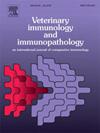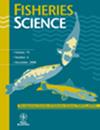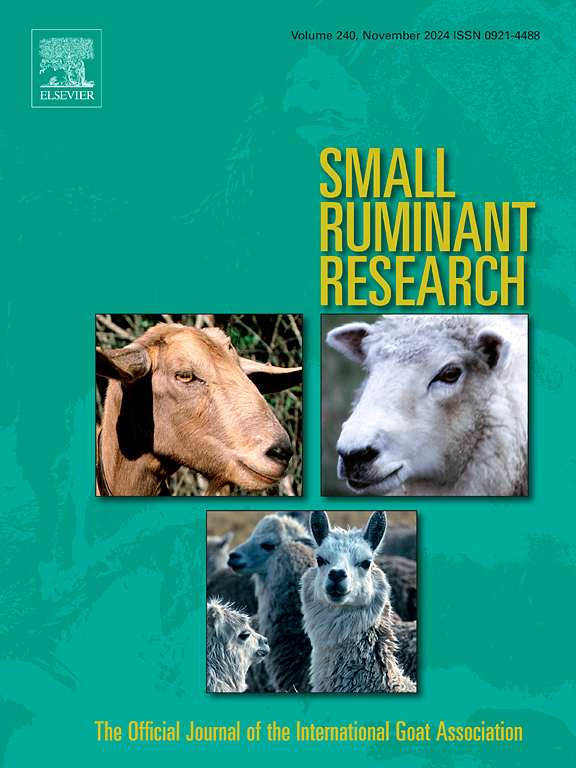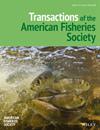期刊缩写:
VET IMMUNOL IMMUNOP
影响因子:
1.4
ISSN:
print: 0165-2427
on-line: 1873-2534
on-line: 1873-2534
研究领域:
农林科学-免疫学
创刊年份:
1979年
h-index:
86
自引率:
5.60%
Gold OA文章占比:
25.00%
原创研究文献占比:
100.00%
SCI收录类型:
Science Citation Index Expanded (SCIE) || Scopus (CiteScore)
期刊介绍英文:
The journal reports basic, comparative and clinical immunology as they pertain to the animal species designated here: livestock, poultry, and fish species that are major food animals and companion animals such as cats, dogs, horses and camels, and wildlife species that act as reservoirs for food, companion or human infectious diseases, or as models for human disease.
Rodent models of infectious diseases that are of importance in the animal species indicated above,when the disease requires a level of containment that is not readily available for larger animal experimentation (ABSL3), will be considered. Papers on rabbits, lizards, guinea pigs, badgers, armadillos, elephants, antelope, and buffalo will be reviewed if the research advances our fundamental understanding of immunology, or if they act as a reservoir of infectious disease for the primary animal species designated above, or for humans. Manuscripts employing other species will be reviewed if justified as fitting into the categories above.
The following topics are appropriate: biology of cells and mechanisms of the immune system, immunochemistry, immunodeficiencies, immunodiagnosis, immunogenetics, immunopathology, immunology of infectious disease and tumors, immunoprophylaxis including vaccine development and delivery, immunological aspects of pregnancy including passive immunity, autoimmuity, neuroimmunology, and transplanatation immunology. Manuscripts that describe new genes and development of tools such as monoclonal antibodies are also of interest when part of a larger biological study. Studies employing extracts or constituents (plant extracts, feed additives or microbiome) must be sufficiently defined to be reproduced in other laboratories and also provide evidence for possible mechanisms and not simply show an effect on the immune system.
CiteScore:
| CiteScore | SJR | SNIP | CiteScore排名 |
|---|---|---|---|
| 3.4 | 0.443 | 0.539 | 学科 排名 百分位 大类:Veterinary 小类:General Veterinary 40 / 194 79% 大类:Immunology and Microbiology 小类:Immunology 173 / 236 26% |
发文信息
中科院SCI期刊分区
2025年3月20日发布
| 大类 | 小类 | TOP期刊 | 综述期刊 |
|---|---|---|---|
| 3区 农林科学 | 4区 免疫学 IMMUNOLOGY 4区 兽医学 VETERINARY SCIENCES | 否 | 否 |
2023年12月发布
| 大类 | 小类 | TOP期刊 | 综述期刊 |
|---|---|---|---|
| 3区 农林科学 |
3区
兽医学
VETERINARY SCIENCES
4区
免疫学
IMMUNOLOGY
|
否 | 否 |
WOS期刊分区
| 学科分类 |
|---|
Q4IMMUNOLOGY Q2VETERINARY SCIENCES |
历年影响因子
| 2016年 | 1.6640 |
|---|---|
| 2017年 | 1.7180 |
| 2018年 | 1.6320 |
| 2019年 | 1.8460 |
| 2020年 | 2.0460 |
| 2021年 | 1.9430 |
| 2022年 | 1.8000 |
| 2023年 | 1.4000 |
| 2024年 | 1.4000 |
历年发表
| 2012年 | 268 |
|---|---|
| 2013年 | 216 |
| 2014年 | 171 |
| 2015年 | 154 |
| 2016年 | 157 |
| 2017年 | 101 |
| 2018年 | 157 |
| 2019年 | 114 |
| 2020年 | 112 |
| 2021年 | 133 |
| 2022年 | 79 |
投稿信息
出版周期:
Monthly
出版语言:
English
出版国家(地区):
NETHERLANDS
接受率:
30%
初审时长:
45 days
审稿时长:
70 days
发表时长:
3 days
出版商:
Elsevier
编辑部地址:
ELSEVIER SCIENCE BV, PO BOX 211, AMSTERDAM, NETHERLANDS, 1000 AE
Veterinary immunology and immunopathology - 最新文献
Analysis of IgG responses to Sarcocystis neurona in horses with equine protozoal myeloencephalitis (EPM) suggests a Th1-biased immune response
Pub Date : 2025-09-24 DOI: 10.1016/j.vetimm.2025.111009 Catherine J. Angwin , Izabela de Assis Rocha , Stephen M. Reed , Jennifer K. Morrow , Amy Graves , Daniel K. HoweAnalysis of IgG responses to Sarcocystis neurona in horses with equine protozoal myeloencephalitis (EPM) suggests a Th1-biased immune response
Pub Date : 2025-09-24 DOI: 10.1016/j.vetimm.2025.111009 Catherine J. Angwin , Izabela de Assis Rocha , Stephen M. Reed , Jennifer K. Morrow , Amy Graves , Daniel K. HoweEvaluation of pro-inflammatory activity and immunogenicity of an inactivated SBA-15 silica vaccine against Mycoplasma hyopneumoniae in piglets
Pub Date : 2025-09-23 DOI: 10.1016/j.vetimm.2025.111008 Gabriel A. de Aguiar , Fernando A. Moreira Petri , Daniela G. da Silva , Marina L. Mechler-Dreibi , Tereza S. Martins , Márcia C.A. Fantini , Osvaldo A. Sant’Anna , Hélio J. Montassier , Luís Guilherme de Oliveira
免责声明:
本页显示期刊或杂志信息,仅供参考学习,不是任何期刊杂志官网,不涉及出版事务,特此申明。如需出版一切事务需要用户自己向出版商联系核实。若本页展示内容有任何问题,请联系我们,邮箱:info@booksci.cn,我们会认真核实处理。
本页显示期刊或杂志信息,仅供参考学习,不是任何期刊杂志官网,不涉及出版事务,特此申明。如需出版一切事务需要用户自己向出版商联系核实。若本页展示内容有任何问题,请联系我们,邮箱:info@booksci.cn,我们会认真核实处理。








